National cause to ‘rejoice’ as one-month-old white rhino calf named
Mum Kipenzi tragically lost her last calf, but Australia’s newest white rhino calf is bringing joy by name and nature, now dubbed ‘Jabulani’, the Zulu word for ‘rejoice’, following his August birth
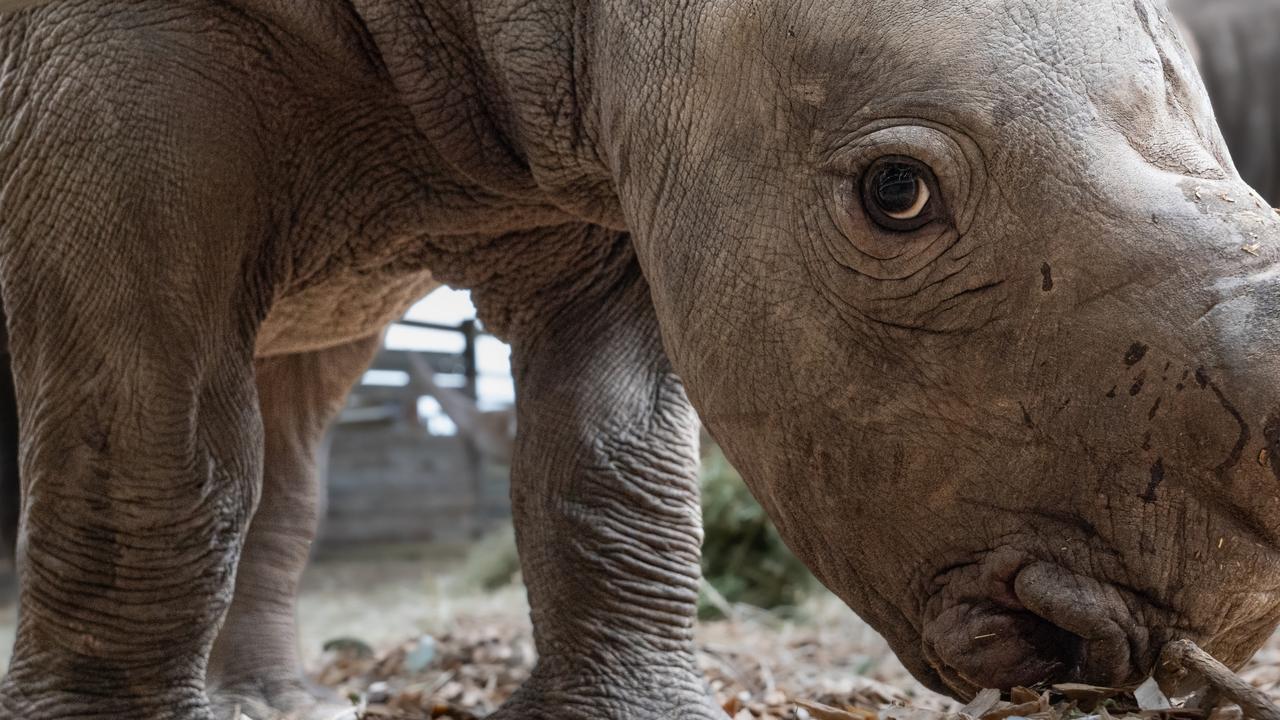
READING LEVEL: GREEN
After charging straight into the hearts of the nation last month, Werribee Open Range Zoo’s precious southern white rhino calf now has a name following an online competition.
Jabulani, meaning “bringing joy” and “rejoice”, was the most popular choice and now it’s been made official.
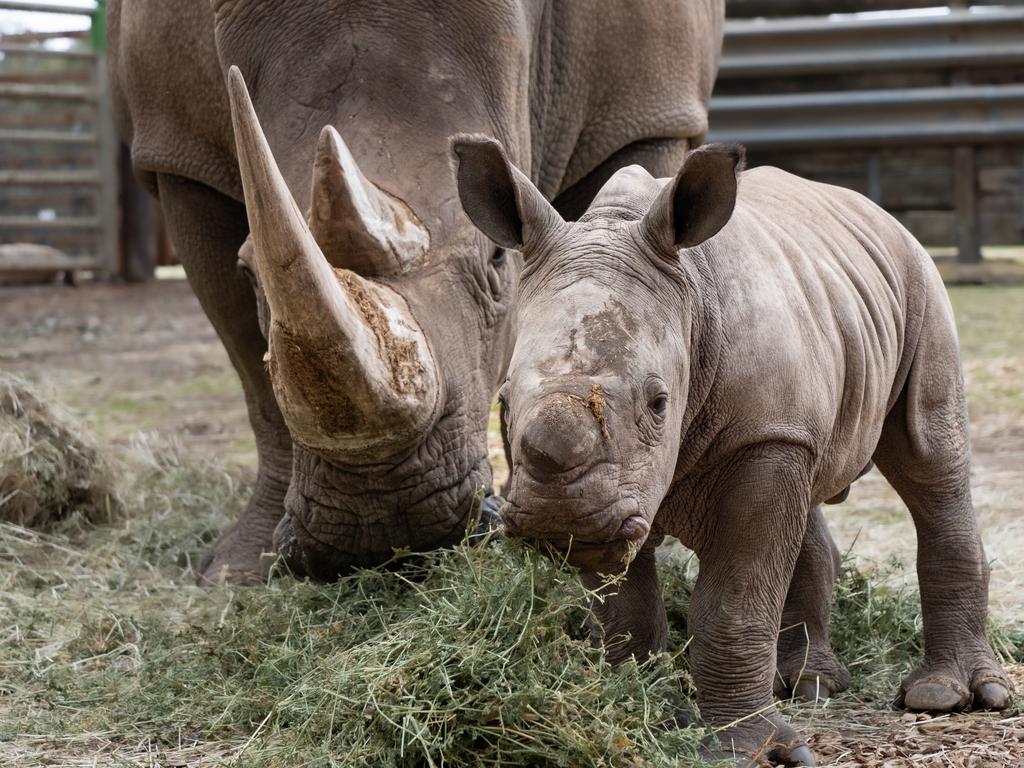
Werribee’s savannah* keeper Sophie Gray said the name perfectly suited the adorable little rhino.
“Jabulani is a Zulu* word, a dialect* from Africa where wild rhinos reside,” Ms Gray said. “It’s meaningful because it reflects the immense amount of joy he has brought to his mother Kipenzi, zoo staff and everyone around the country who has followed the wonderful news of his birth.”
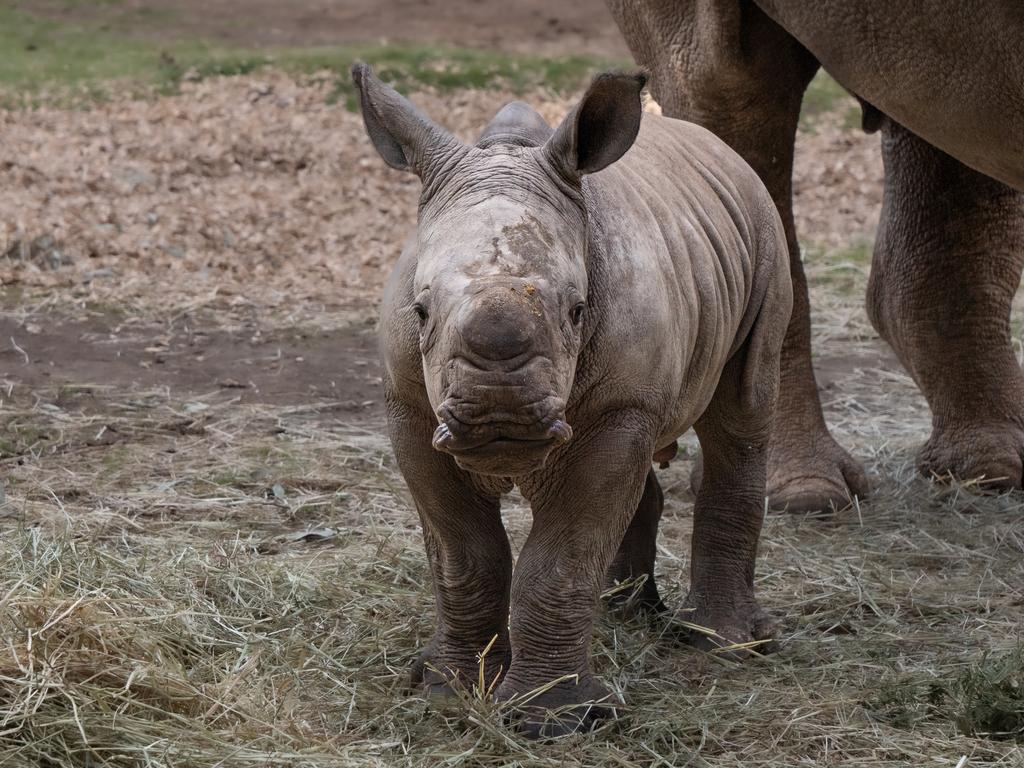
Jabulani was born on August 18 to 15-year-old father Kifaru and 11-year-old mother Kipenzi,
following a 16-month pregnancy. The successful birth has delighted staff, who are marvelling at the remarkable bond the calf is forming with its mother.
Kipenzi, who was hand-reared* and had never experienced successful mothering, tragically lost her first calf last year after she leaned her two-tonne frame onto her newborn, causing fatal trauma. This time, however, Kipenzi’s maternal instincts have flourished.
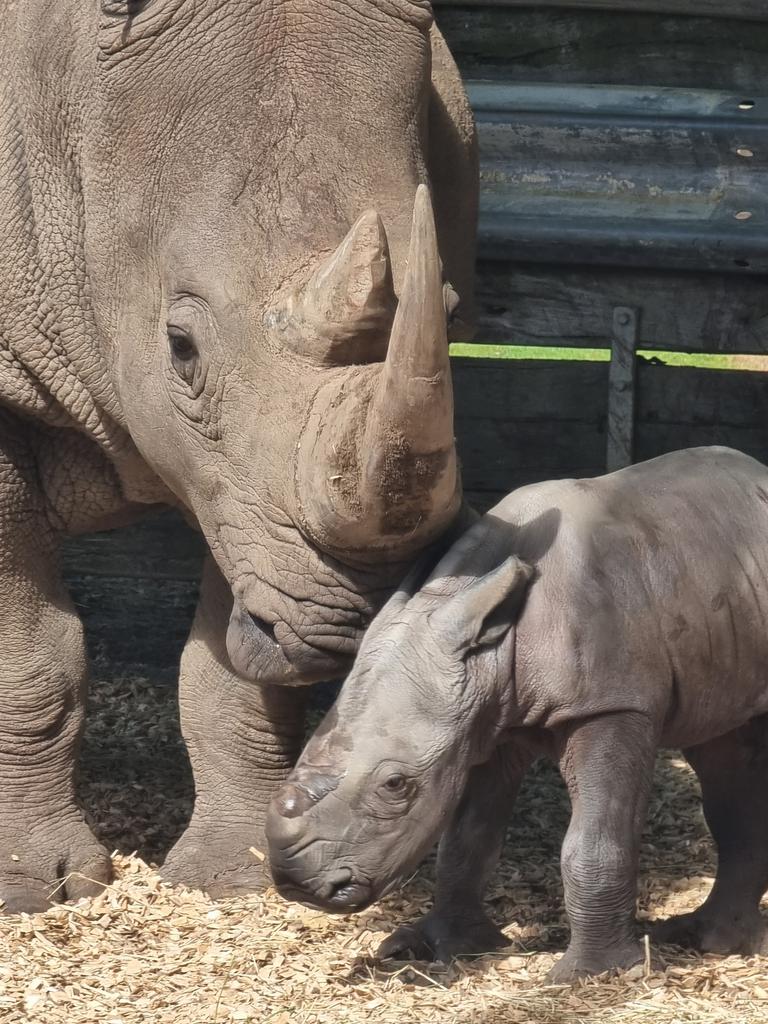
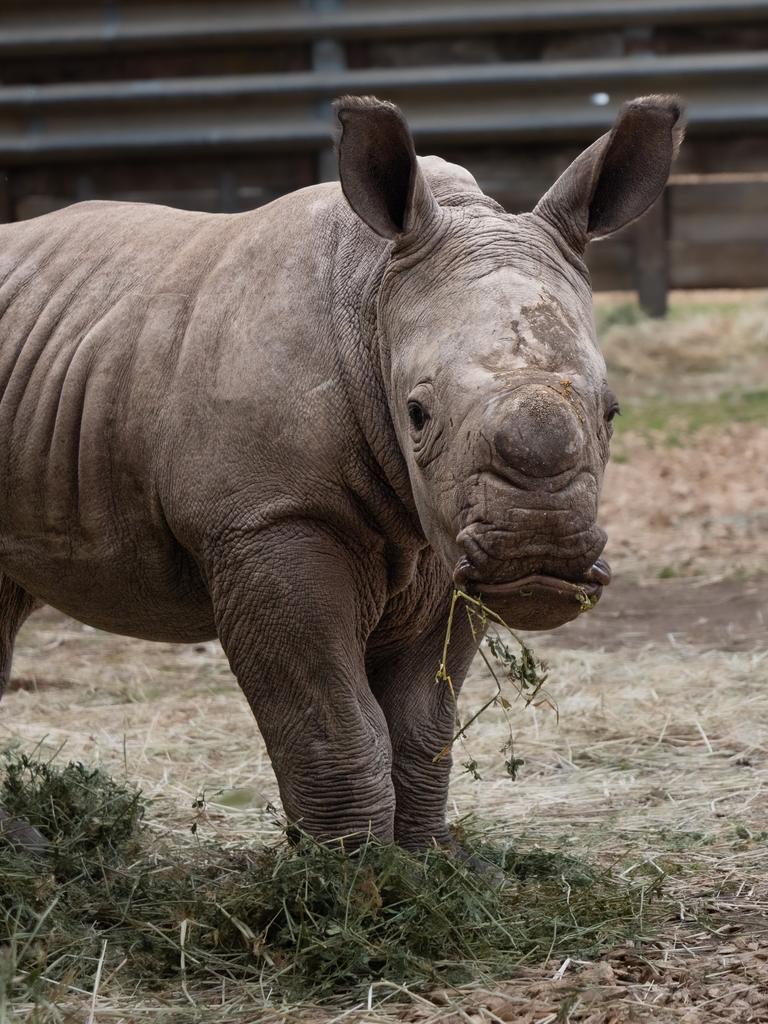
Ms Gray said it was beautiful to see both Kipenzi and Jabulani’s connection going from strength to strength.
“Incredibly, Jabulani is drinking a whopping eight to 14L of Kipenzi’s milk every day, which is translating to a growth of a very healthy five to 10kg per week,” Ms Gray said.
Ms Gray said Jabulani’s charismatic* behaviour was also starting to shine through, which included “zoomies*”.
“He’s so confident and inquisitive*,” Ms Gray said. “We’re also seeing him participate in some mock charges, which is a natural behaviour that is his way of telling us that he’s the boss. He puts his head down and nose towards the ground and charges forwards, then jumps on the spot and turns around quickly. It is very cute!”
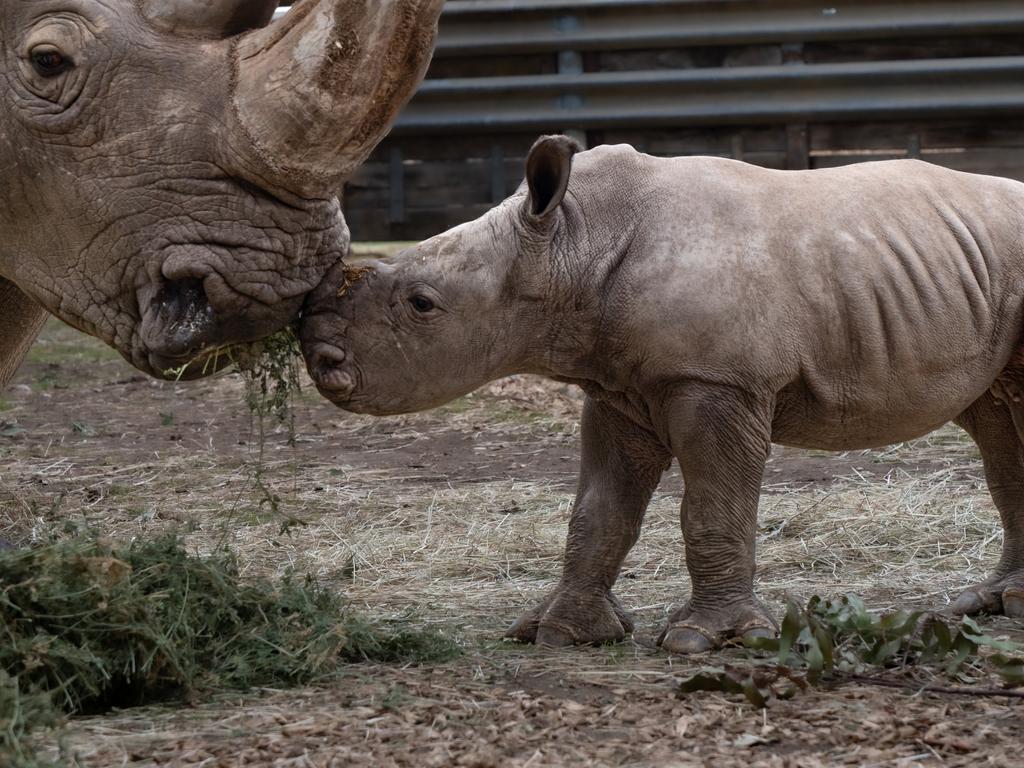
Native to Southern Africa, southern white rhinos are currently classified as “near threatened”. It is estimated as few as 10,080 southern white rhinos remain in the wild. They face increasing threats, including poaching* for the illegal rhino horn trade, and habitat* destruction and fragmentation as human populations and infrastructure* grow.
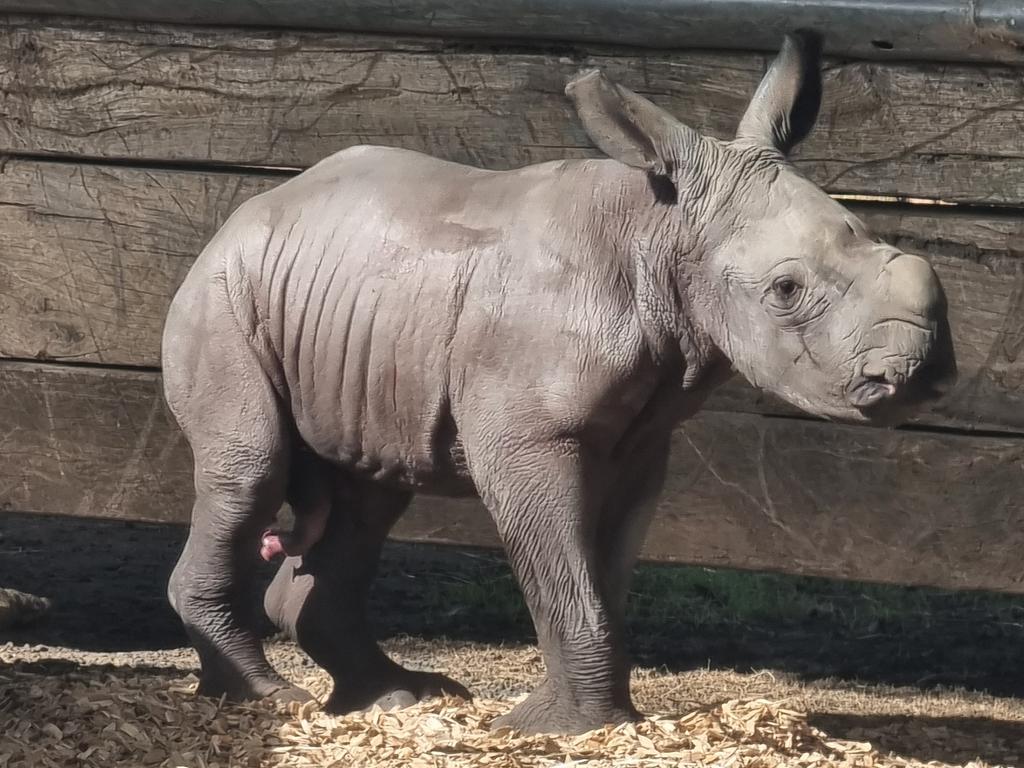
The Australasian southern white rhino zoo breeding program plays a crucial role supporting efforts to conserve wild rhino populations by nurturing genetically diverse groups in
protected zoo environments, supporting fundraising efforts to conserve the species in their native home, and raising public awareness of their plight. Zoo populations like Werribee’s also help to manage risk and could be called on in case of ongoing decline in the wild.
Jabulani and Kipenzi are both currently homed in a keeper-only area so they have private time to develop their bond. The calf will soon be introduced to the wider rhino crash* and then in the coming months to the zoo’s savannah, where eager visitors will finally be able to meet
him.
WATCH THE VIDEO
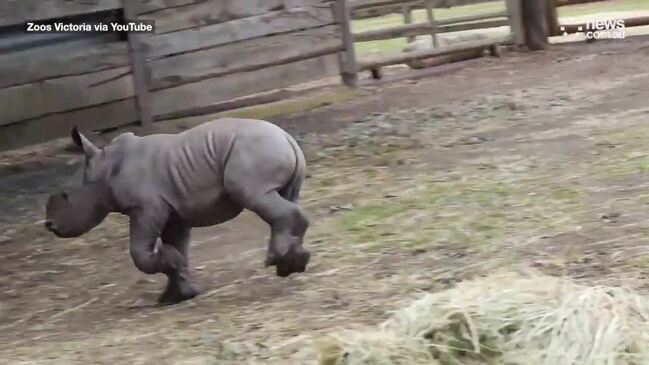
POLL
GLOSSARY
- savannah: open grasslands, usually with scattered bushes or trees, characteristic of much of tropical Africa
- Zulu: South Africa’s largest ethnic group, living mainly in KwaZulu-Natal province
- dialect: version or form of a language that is spoken in a particular area
- hand-reared: fed and cared for by humans until fully grown
- charismatic: charming, full of personality, compelling and magnetic
- zoomies: bursts of energy in animals
- inquisitive: curious, interested, inquiring
- poaching: the illegal theft, trade (buying and selling) and killing of wildlife
- habitat: the place or environment where a plant or animal naturally or normally lives and grows
- infrastructure: buildings, roads, industry making
- crash: collective noun for a herd of rhinos
EXTRA READING
Radioactive rhino horns to curb poaching
Zoo welcomes southern white rhino calf
Baby hope for last northern white rhinos
QUICK QUIZ
- How long did Kipenzi’s pregnancy last?
- How much milk is Jabulani drinking every day?
- How much weight is he putting on each weight?
- What is the estimated number of southern white rhinos left in the wild?
- Which African dialect was the source of Jabulani’s name and why?
LISTEN TO THIS STORY

CLASSROOM ACTIVITIES
1. Safari guide
At the Werribee Open Range Zoo, the savannah where the rhinos (and a range of other animals) can be viewed is accessed on a safari tour. As the safari vehicle makes its way around the savannah, your guide points out and gives information about the animals. Write a script that could be used to tell visitors about Jabulani when he is spotted on safari. Include information found in the news story and engage your “writer’s voice” to ensure your script suits the occasion and audience.
Time: allow 20 minutes to complete this activity
Curriculum Links: English
2. Extension
What is the meaning of your name and why was it chosen? If you already know, write down your name story. If you don’t, research to find out – you could look up the meaning of your name and/or talk to your relatives about it.
OR
At the end of the news story, the writer refers to the “rhino crash” at the zoo. ‘Crash’ is the collective noun for rhinos and seems to fit them well! Research to make a list of other fun collective nouns used for groups of animals.
Time: allow 10 minutes to complete this activity
Curriculum Links: English
VCOP ACTIVITY
Adjectives
An adjective is a describing word. They are often found describing a noun. Start by looking at the words before the nouns.
Search for all the adjectives you can find in the article.
Did you find any repeat adjectives or are they all different?
Extension:
Pick three of your favourite adjectives from the text and put them in your own sentences to show other ways to use them.
Have you used any in your writing?

